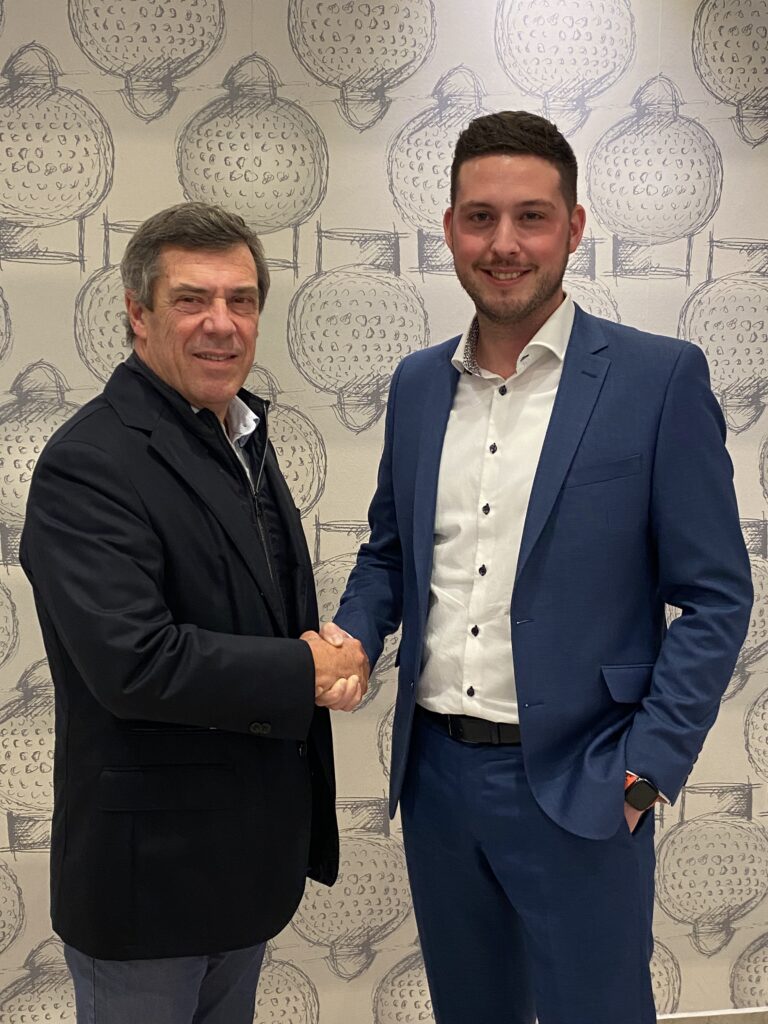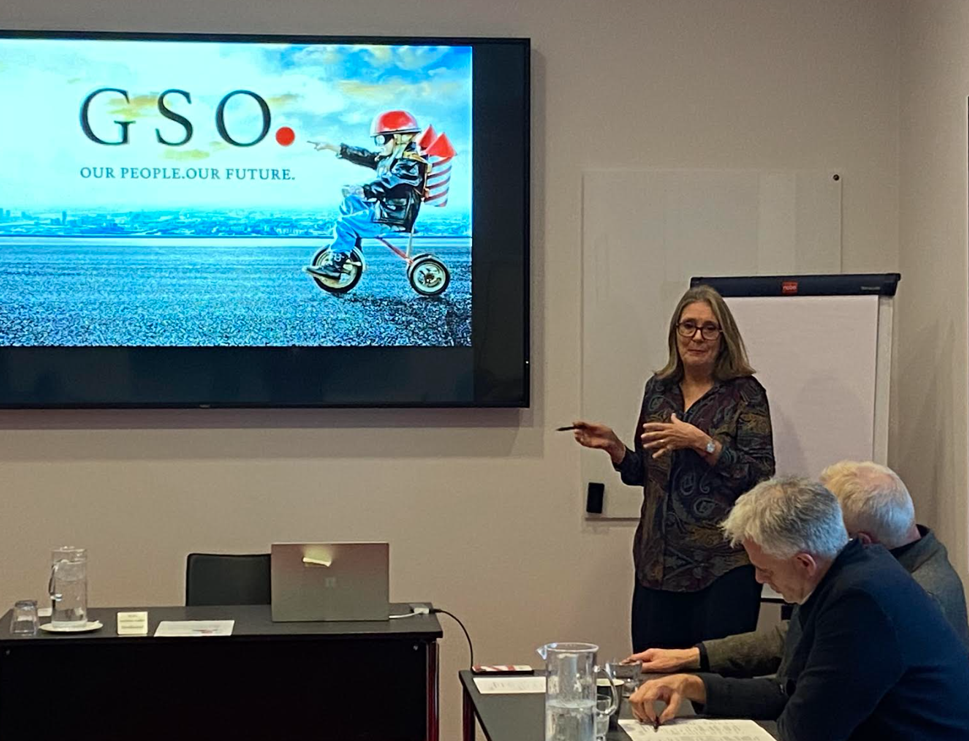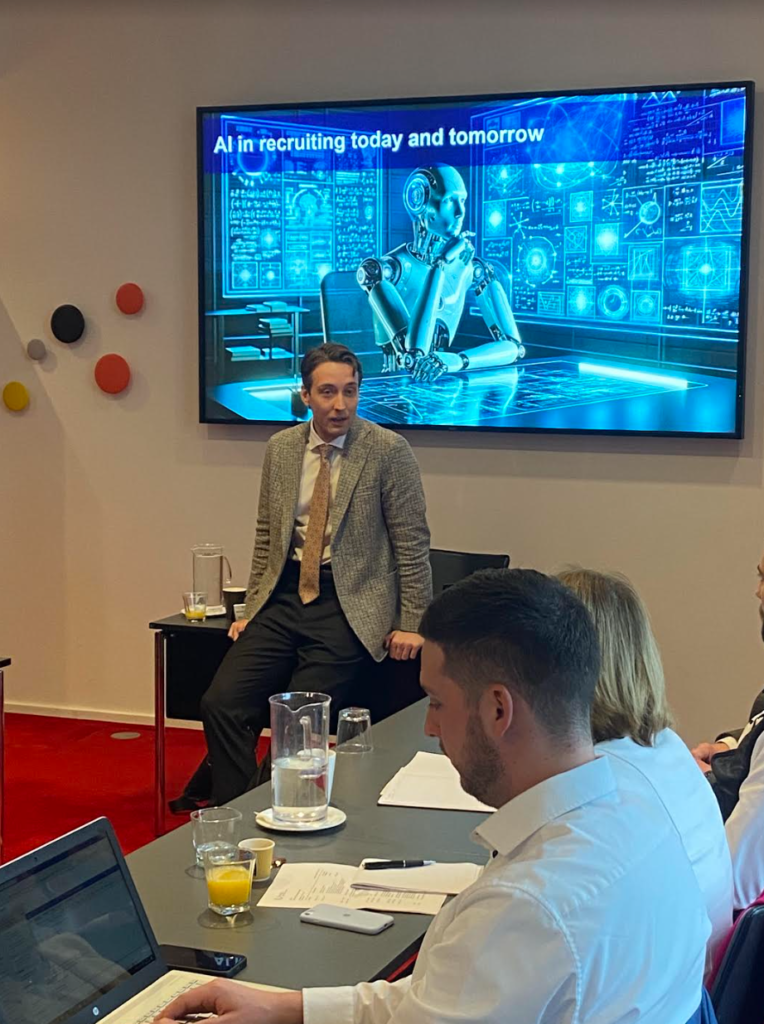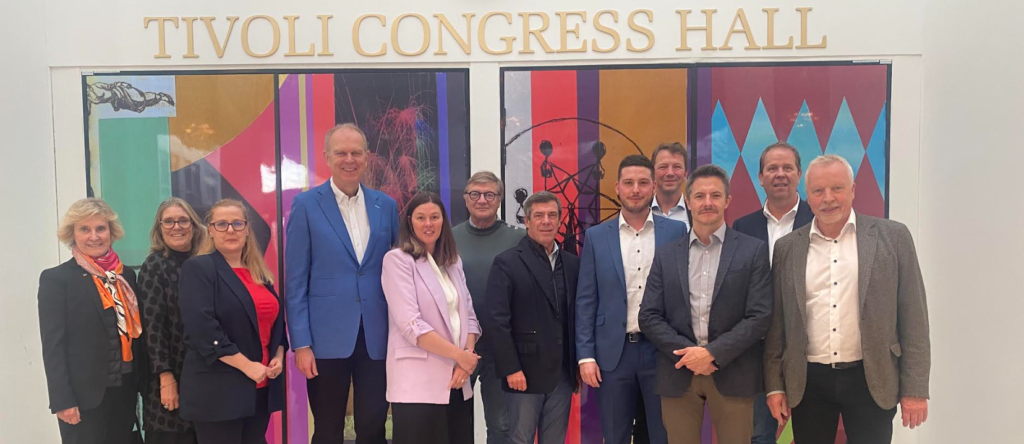Klemens Wersonig, partner of INAC Slovakia was recently interviewed by “The Slovak Spektator”, where he spoke about the impacts of the pandemic, AI and the differences between Slovak and foreign managers when searching for the ideal candidate.
Finding candidates takes longer, with fewer available.
Society in general must become more flexible, given the shortage of talents the world is facing, says Klemens Wersonig, CEO of Target Executive Search CEE, referring both to the age of potential candidates and their plans to remain with one company.
“We recently placed a lady over 60 into a top managerial position. A few years ago, this would have been impossible,” said Wersonig, welcoming this flexibility. “These trends will continue.”
Accepting candidates of higher ages should no longer be an issue. Another topic concerning flexibility is loyalty within companies. While 10 years ago Target’s clients looked to hire somebody who would stay at least five years, following the pandemic and subsequent crises they are satisfied if somebody says they will stay for two years.
The Slovak Spectator spoke with Wersonig about the impacts of the Covid pandemic on headhunting, differences between Slovak and foreign managers, as well as what tasks artificial intelligence can perform in filling positions.
What are the main differences between a recruitment agency and an executive search firm?
I would call it the social media trap. This means that recruitment companies are relying on social media only. This means that they reach only people who can be found on LinkedIn or Facebook. Headhunting companies typically go beyond that. They aim to identify people who are maybe too busy to be active on social media. For example, I know some managers who could be candidates for possible positions and they say that they check LinkedIn maybe once per quarter because they are just too busy.
Which assignments are suitable for a recruitment agency and which are better performed by an executive search firm?
The general trend is that executive search firms are going down to lower levels in the market and they are looking for positions and projects which they would not have looked at five years ago. The reason is that the qualified labour force became so scarce on all levels. Companies often cannot find an account manager or some specialist just by simply advertising the post, as either no people apply or the wrong people apply. Therefore the trend is that headhunting is needed at lower levels.
What challenge does the shortage of qualified labour on the market pose to headhunters?
It is a big challenge because it means our work has increased dramatically. We need to do much more searching in order to find the same quality of people among the same amount of people. Originally in the classical headhunting world, you did research for one or one and a half months and you came to a shortlist of three to five people. Nowadays we often have to search for two or three months and we are happy if we find two people.
What are the main differences in making an executive search in Slovakia and in other countries where your company operates?
Our company focuses on central and eastern Europe ,while we also have offices in Austria and Germany. And there is not so big a difference between Slovakia and Hungary or the Czech Republic. But with Germany and Austria there are differences. But what is really special in Slovakia is the very limited number of candidates. This is because of the brain drain and also because people over a certain age, nowadays around 55, are often not considered as possible candidates. It used to be basically a European problem that people over 50 were not considered. But this is shifting and many countries have started to change and consider people above 55 or even ask retired people to come back. But this is much less the case in Slovakia.
Why do you think this is so?
I consulted with my Slovak colleagues and they think that basically there is a prejudice – as hiring people are typically west European managers – against people of a certain age as the managers are afraid that older people will carry too much baggage in their minds from communist times.
Do you also fish for successful Slovaks abroad?
This would be an ideal scenario and many of our clients would want that actually. But it is very difficult to reach those people because these communities are difficult to reach. When we talk to these people, usually they have very high expectations in order to return because they would have to give up their well-settled life in Canada or Germany. So, it does not normally work, except for one small segment in the market of Slovaks living abroad: those who actively want to come back for whatever reason; nostalgia or family reasons, etc. These people tend to approach us actively. We have a few such people every month. They are highly qualified and have great market value.
Do you succeed in finding them good jobs?
Yes, definitely.
Are there any differences in managers in Slovakia and abroad in terms of their skills and abilities?
Our company made a study regarding cultural differences a few years ago and this was one of the questions that was raised. The outcome was that team work ability and discipline is very high in Slovakia. Slovak managers are also very well structured and organised and thus have a good image even within the central European community. This is also shown in industry, with so many car manufacturers and suppliers operating in Slovakia. One of the reasons is that Slovaks are high-performing. Another reason is that logistics in Slovakia are very close to western Europe.
What impacts has the pandemic had on headhunting? Will these effects continue?
One major impact was holding video meetings and video interviews. These will continue because they are faster and easier to organise. But they have brought in less commitment. Potential candidates, when approached with an offer, first say that they are interested. Then one week later they change their minds. This is because there was no personal meeting and they feel much less committed. But this is part of the shift in society as a whole. Everything is very fast.
The pandemic brought on a phenomenon known as the Great Resignation in the US, where employees began to voluntarily quit their jobs en masse. Is this phenomenon also occurring in the region of central and eastern Europe or in Slovakia?
Definitely not. The reason why is that people here are fighting much more for their livelihoods. In general, they are poorer, so they need the salary to support the family, to pay their mortgage, they cannot afford to say: I will quit to find fulfilment without a regular income.
This comes back to the differences of Slovak managers. One finding of our study was that there is a lack of entrepreneurial spirit amongst Slovaks. The desire to step out of a safe world with a fixed income into entrepreneurial risks is very low in Slovakia.
What qualities does a headhunter need to be good?
The first quality is listening skills. Listening is very important because we have to listen to, of course, interviews, but also listen to what clients want. A good headhunter must also have a good balance of sales and HR skills. It is also a sales job, which is often forgotten. This is because we have to sell our services to potential new clients, we have to sell the job to the candidate and we have to sell the final candidate to the client. It is not enough just to do a good interview and select a good candidate. But we also have to have this sales transaction.
What conditions must be met for a good match to occur?
Besides objective factors, such as the right experience, language, age, salary and all these criteria, it is needed to get the personal chemistry right between the candidate and the future boss for a really good match. That is the key element. This is why before actually hiring someone the parties have to meet in person. You can have early video interviews for early screening, but there is still a huge difference, and I think it will last, between video and personal interview. This is because when somebody walks into the room, there are so many messages coming: putting the mobile phone on the table, it is almost like showing a power symbol – see I’m here, I can be reached. Even how somebody is sitting at the table, putting the chair back after the meeting or just leaving it there in the corner can tell a lot about the candidate. There are so many details which are not possible to see in a video interview.
What was your best match of a top manager and company in the long term?
There are two, one in Slovakia and one in Hungary. The first one is Andrej Arendáš, managing director at Kärcher Slovakia. Our company placed him in Osram in Slovakia. At that time, he was a young and very promising manager. He stayed with the company for 10 years and even became its general manager. The other one is a manager I placed 25 years ago in one company in Hungary. He has become a European manager and made a wonderful career. He is still with the company.
Do you approach managers you have placed before when you are looking for managers for another client?
Our own placed candidates are off limits as long as they are with the company. It means we do not approach them ever, even if they are a good fit. This is our business approach.
What should headhunters do to avoid a failure in headhunting?
Check and double check. Good references come from previous bosses, not from previous colleagues. When we can reach the previous boss we ask one very easy and immediate key question, whether he or she would hire the person again. If the reference person hesitates a bit, then already we have some doubts.
Have you predicted a good match that in the end was not?
Yes, of course, we also make mistakes. It happens because, despite being careful and checking, we cannot look inside people’s minds. They may be playing a role and cheating us. It has happened to me also, I misjudged people, too.
Which aspect of headhunting can be performed by AI?
Obviously the data screening parts or CVS screening and matching with the job description. But I also see danger here. This is because candidates are using artificial intelligence to apply and get their CV written. On the other hand, another artificial intelligence is checking that CV and application. So, in the end we have two computer systems checking each other. But in general, especially in mass recruitment for workers where no personal meeting is needed, AI plays a huge role for sure.
What should young people with the ambition to become top managers focus on during their studies or the early years of their career?
They should go out into the world to learn languages and experience other cultures and test what they are good at, say through internships or apprenticeships. Jobs can have a good image or even a good salary, but the daily reality of a job might be very different.














